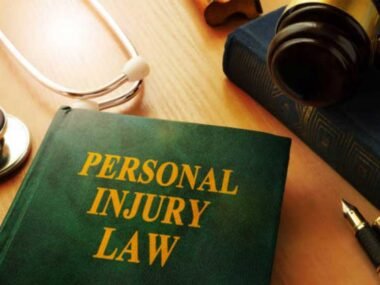Accidents, whether they occur on the road, in the workplace, or at home, can throw life into disarray. The moments following an accident are often chaotic, leaving people unsure of what actions to take. Knowing the steps to regain control can make a significant difference in the outcome of the situation. This guide walks through essential actions that help restore order, protect your rights, and ensure a smoother recovery. While no one expects to experience an accident, being prepared can lessen the stress and confusion that come with it.
Legal Protection: Understanding Your Rights
One of the first things to focus on after an accident is protecting your legal rights. Legal protection ensures that you are not taken advantage of in a time of vulnerability. If the accident was caused by another party, understanding how the law can support your case is key. Whether it involves filing an insurance claim or seeking compensation through legal channels, knowing your rights is crucial for your protection. If you aren’t sure where to begin, you can learn more here about the best legal steps to take following an accident. Consulting an attorney early on can prevent complications down the line and guide you through the intricate processes of legal claims.
Seek Medical Attention, Even if You Feel Fine
Even if you don’t feel immediate pain, it’s important to seek medical attention after an accident. Injuries from accidents aren’t always apparent right away, and what seems like a minor issue could turn into a serious condition later. A healthcare provider can document any injuries and provide advice on treatment or follow-up care. Getting checked early on not only ensures that you are well taken care of but also helps with any potential claims you may need to file later. Sometimes, the most critical injuries are the ones you don’t notice immediately, making it vital to put your health first.
Contact Your Insurance Company

Reaching out to your insurance company quickly is a significant step in the process of regaining control. Whether it’s car insurance, health insurance, or homeowner’s insurance, your policy will determine how your accident is covered. Reporting the incident to your insurer promptly will ensure that you meet any deadlines for filing claims and that the claims process begins as soon as possible. Delaying this step can lead to complications, potentially affecting your coverage or causing further stress during the recovery process.
Gather Evidence and Documentation
Documentation plays an essential role in protecting yourself after an accident. Collecting evidence early can make a big difference if you need to seek compensation or resolve disputes later. Whether it’s taking photos of the scene, getting witness statements, or recording medical treatment details, keeping thorough records will strengthen your case. Be sure to document everything—this includes writing down the specifics of what happened and keeping copies of all medical bills, receipts, and repair invoices. With the right evidence, you can better navigate legal proceedings or insurance claims.
Reach Out to a Support System
Accidents can be physically, mentally, and emotionally overwhelming, and having a strong support system in place is essential for navigating the challenges that arise. The immediate aftermath of an accident can leave you feeling isolated or stressed, which is why reaching out to trusted individuals is so important. Family and friends can offer comfort, assist with daily tasks, and provide a sense of reassurance during uncertain times. In addition to personal connections, professional support can be just as valuable. A counselor or therapist can help you process the emotional impact of the accident, addressing any anxiety, depression, or trauma that may surface. Support groups, whether in-person or online, can also offer a sense of community with people who understand what you’re going through. Emotional support is not just about talking—it’s about feeling understood and knowing that you are not facing the recovery process alone. Beyond emotional care, your support system can assist with logistical challenges as well, such as helping with transportation to medical appointments, coordinating your recovery schedule, or managing household tasks.
Follow Through with Recovery and Legal Actions
After the immediate actions have been taken, the focus should shift to recovery, both physically and legally. This stage involves attending follow-up medical appointments, undergoing physical therapy, or working with your lawyer to ensure that all legal matters are properly addressed. Staying consistent with your recovery plan is crucial to your long-term well-being, and keeping your legal case on track will protect your interests. Whether it’s negotiating with insurance companies or pursuing a lawsuit, following through with these steps helps regain control of your life after the accident.
Accidents can be life-altering events, but the way you respond can determine the path to recovery. Taking these six steps will help you regain control over your situation, ensuring you address both your health and legal needs efficiently.










